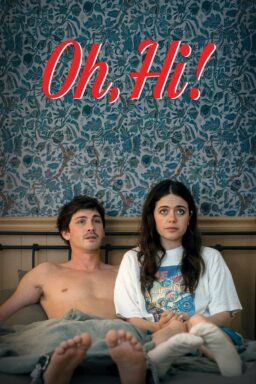Some people daydream and some people don’t.
So said Louis Malle on a sunny day last April, as he peeled an orange and looked out of his hotel window at Lake Michigan. “I think you’re safer if you don’t. If you give just the smallest chance to your imagination, there’s no telling where you’ll end up.”
He’d just made a movie that was an extended, surrealistic daydream. Perhaps it would have been safer if he hadn’t. The film, “Black Moon,” was about a young girl who found herself on a farm populated with snakes, eagles, unicorns, a spiteful old lady and a mysterious young man. It was going to be premiered during the Chicago Film Festival’s French Film Week, and then Malle was off to Hollywood for the summer to write the screenplay for his first film in English. Now the summer’s gone, the screenplay well on its way, and Malle is returning to Chicago for workshops during the retrospective of his films at Facets Multimedia, 555 W. Belden. At 9 p.m. Friday, after a 7 p.m. screening of “Murmur of the Heart,” he’ll join a panel of Chicago film critics in discussion of his work. At 7 p.m. Saturday, before a 9:30 p.m. screening of
“Lacombe, Lucien,” he’ll analyze specific scenes with local filmmakers and teachers, A ticket for both workshops is $3.50.
My guess is that the workshops will be stimulating: Many directors have the maddening trait of claiming ignorance about their films (“It’s up to you to decide what I was trying to do”), but Malle brings an analytical curiosity to his own work. He answers specific questions with specific answers, discussing the decisions he makes about stories, casting and visual strategy.
Louis Malle at 44 still looks youthful enough to be an older brother of the adolescent hero of “Murmur of the Heart.” Yet he was one of the first directors of the French New Wave, that sudden explosion of spontaneity and experimentation in the late 1950s. New Wave films seemed more personal and improvised than the assembly-line products of Hollywood (even if, ironically, their directors sometimes declared American genre films to be their inspiration).
Malle’s first feature film, “The Lovers” (1957) created a scandal at the time, with its nudity and its study of a frankly adult love affair. It had a more lasting legacy, as Malle recalled last April: “It made Jeanne Moreau into a movie star. Before that, she was well known on the stage in Paris, but she’d never made it in the movies. Maybe that’s because the movies they were making needed little sexpot girls and Moreau was a complete person.”
In the three years after “The Lovers,” Godard made “Breathless” (1960), Truffaut made “The 400 Blows,” Resnais made “Hiroshima, Mon Amour” and Chabrol made “Le Beau Serge.” All of them went on to direct bodies of work, which, if they were not always consistent in style, at least showed a logical progression from one idea about movies to the next. Not Malle, who has yet to make two films that fit into the same niche.
“I like to think of myself as starting over again every time,” he said. “I don’t like to repeat myself – not in subjects, and not in my visual approach. With one film, I go in one direction, and then my curiosity takes me somewhere else. When I was making ‘The Fire Within,’ for example, I became very depressed – It’s about the last days of an alcoholic – and I said, by God, the next film I make will be a comedy. So I made ‘Viva Maria,’ with Moreau and Bardot.
“And at the end of ‘Lacombe, Lucien,’ the characters are all alone in this perfectly deserted part of France. I wanted to explore that last sequence. And so ‘Black Moon’ begins more or less where ‘Lacombe’ ends – with a character in the deserted landscape. But ‘Lacombe’ was a realistic character study, and ‘Black Moon’ is a surrealistic fantasy.”
In addition to his fiction films, Malle has made several documentaries; he got his start underwater with Jacques Cousteau on “The World Below,” and his seven-part “Phantom, India” has played on Channel 11. But he doesn’t draw a line between the two kinds of films: “There’s nothing more subjective than a
documentary, which consists above all of your interpretation of the events. The one thing my films do have in common, I’ve found after all these years, is that they deal with forms of loneliness, and their characters, reach a breaking point and arrive at some kind of decision.”











